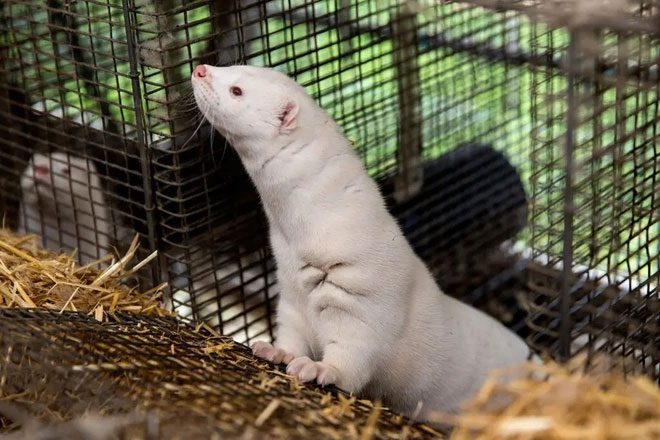The Centers for Disease Control and Prevention (CDC) confirmed that in the first year of the pandemic, at least four people in Michigan were infected with a variant of the nCoV virus found in minks.
Dr. Casey Barton Behravesh, Director of the CDC’s Office of Health, stated that the virus samples were collected in October 2020. Among those infected, two were farm workers at a mink farm in Michigan, while the other two had no direct connection to the farm.

The nCoV variant in minks may have emerged and spread more widely in the local community.
According to The New York Times, this data suggests that the nCoV variant in minks may have emerged and spread more widely in the local community at that time. The strain of the virus that infected them contained two mutations that were previously thought to be signs of adaptation of nCoV in minks. These mutations have been documented in farmed minks in Europe and in people associated with those farms.
“This supports the plausible hypothesis that farm workers contracted the virus after coming into contact with infected minks. However, this cannot be conclusively proven. Given the limited genetic sequences available from the community surrounding the farm, we cannot be certain whether the mutations originated from the minks on the farm or if they had already appeared in the community beforehand,” Dr. Barton Behravesh explained.
Dr. Barton Behravesh mentioned that investigators collected samples from animals and farm workers, as well as local residents. In March 2021, the CDC updated their official website to note that “some individuals” had been infected with a version of nCoV “containing mutations specifically associated with minks”. The agency emphasized that “data suggest that transmission from minks to humans may have occurred” and that all patients had recovered.
Meanwhile, according to National Geographic, the first two people infected with nCoV from minks were identified on November 4, 2021, several months before the CDC updated their data on the website. Dr. Barton Behravesh stated: “The CDC received genomic sequencing information indicating the potential for transmission from minks to humans in late 2020. Subsequently, the agency worked with relevant officials to clarify the situation.”
The transmission from minks to humans has also been reported in Denmark, the Netherlands, and several other locations.
Overall, the transmission of viruses from animals to humans is very rare. Experts indicate that humans are much more likely to transmit nCoV to each other or to other species than the reverse.


















































